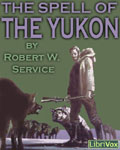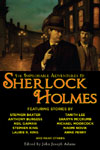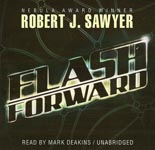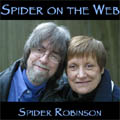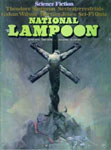
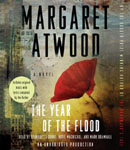 The Year Of The Flood
The Year Of The Flood
By Margaret Atwood; Read by Bernadette Dunne, Katie MacNichol and Mark Bramhall
11 CDs – Approx. 14 Hours [UNABRIDGED]
Publisher: Random House Audio
Published: September 22, 2009
ISBN: 9780739383971
Themes: / Science Fiction / Dystopia / Disaster / Environmentalism / Environmental Disaster / Ecology / Planetary Ecology / Religion / Genetic Engineering / Sex / Activism / Genetics /
The long-awaited new novel from Margaret Atwood. The Year of the Flood is a dystopic masterpiece and a testament to her visionary power. The times and species have been changing at a rapid rate, and the social compact is wearing as thin as environmental stability. Adam One, the kindly leader of the God’s Gardeners—a religion devoted to the melding of science and religion, as well as the preservation of all plant and animal life—has long predicted a natural disaster that will alter Earth as we know it. Now it has occurred, obliterating most human life. Two women have survived: Ren, a young trapeze dancer locked inside the high-end sex club Scales and Tails, and Toby, a God’s Gardener barricaded inside a luxurious spa where many of the treatments are edible. Have others survived? Ren’s bioartist friend Amanda? Zeb, her eco-fighter stepfather? Her onetime lover, Jimmy? Or the murderous Painballers, survivors of the mutual-elimination Painball prison? Not to mention the shadowy, corrupt policing force of the ruling powers . . .Meanwhile, gene-spliced life forms are proliferating: the lion/lamb blends, the Mo’hair sheep with human hair, the pigs with human brain tissue. As Adam One and his intrepid hemp-clad band make their way through this strange new world, Ren and Toby will have to decide on their next move. They can’t stay locked away . . .By turns dark, tender, violent, thoughtful, and uneasily hilarious, The Year Of The Flood is Atwood at her most brilliant and inventive.
Margaret Atwood’s book The Year Of The Flood spans several years, before, after and during the waterless flood which is a plague that affects only humans. There are three readers, Bernadette Dunne, Katie MacNichol and Mark Bramhall. Throughout the eleven discs (14 hours), I enjoyed listening to the women, and began to dread the onset of the male reader. He was certainly professional. Was it his character, Adam One, a religious cult leader of God’s Gardeners? Was it the inevitable sermon he would read in a church-appropriate voice? Or was it the hymns, written by Atwood and set to “original” music that would have me engaging in positive procrastination in order to avoid finishing this audiobook.
The loveliest parts of the book take place from the point of view of Ren, a child in God’s Garden. The religion is a logical outcome for a near future on Earth following environmental disasters not too difficult to imagine. Technologies we toy with today lead to some A Clockwork Orange style vocabulary. Words such as “garboil” (a kind of petroleum made from trash) lend a frighteningly vital immersion into this eco-nightmare. Other wonderful vocabulary delights come through the genetic alterations of food and creature such as soydines and bugs with little smiley faces engineered thereon so thoughts of squishing them would be repugnant. The Gardeners have a host of saints to celebrate, showing Atwood’s ability to relate some important environmentalists and peaceniks to her tale including Saint Rachel Carson, Saint David Suzuki and Saint Mahatma Gandhi.
The main female characters, Ren and Toby, both fully developed, are compelling. Throughout the story, one is interested in them as human beings, in their suffering, in their losses, in their desires. Despite the time shifts, the readers manage to keep the characters believable; one is lost in the story (as one should be!) until the final disc. Maybe Atwood can’t write optimistic endings. With all the violence, sadistic sex and death in the world of the Gardeners who are staunch vegetarians who don’t even kill the insects that invade their gardens; with spray guns, layabout body parts and a world of human-pig hybrids conducting funerals, the last disc felt wrong. Ren’s character becomes childish. Toby becomes a murderous cold-blooded killer and then suddenly has another personality shift. The only character to remain true is the one-dimensional ADAM ONE. I was strung along on the brilliant imagination, left flat on story line, and confused in the end by the characters I thought I liked.
Am I waiting for that third expected book in a TRILOGY featuring some of these characters? My interest in Atwood’s “exfernal” world is now lukewarm.
Posted by Elaine Willis

